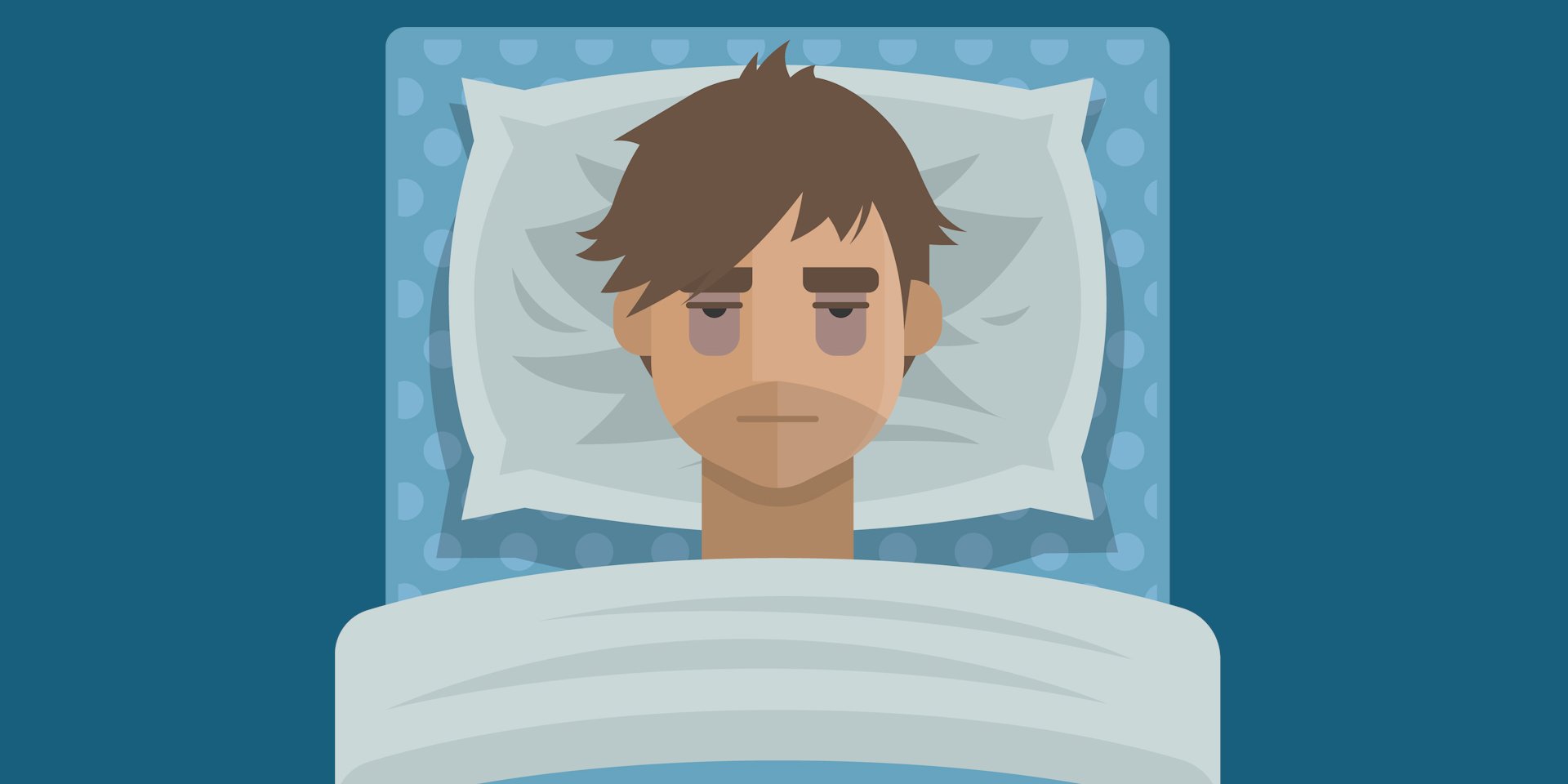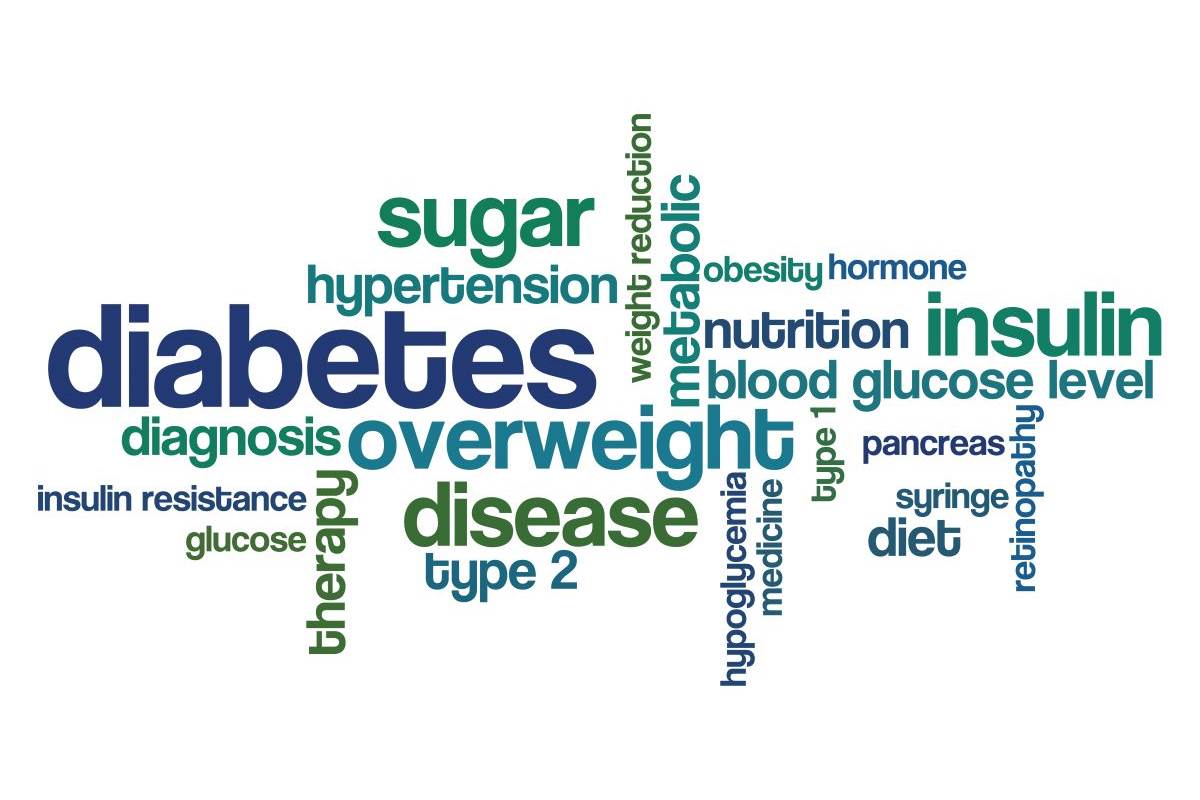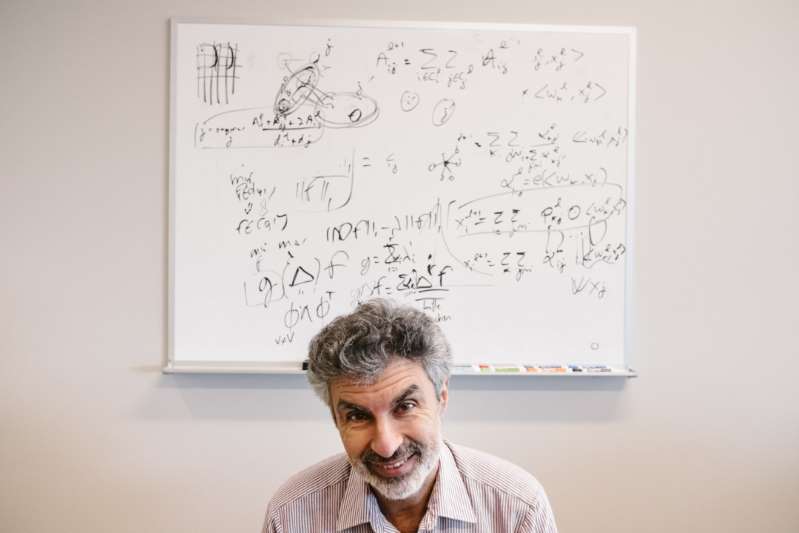Nature Knows and Psionic Success
God provides
Your definitive guide to studying like a boss

It’s test season, and you’ve been at Club Anschutz for hours. You had a crunchy chicken cheddar wrap and waffle fries for lunch, followed by several liters of mediocre coffee. The fluorescent light bulb flickering above is giving you a headache–or is it from the coffee? The frat daddies sitting at the table next to you won’t stop talking the pregame they’re having this weekend. Your groufit is littered with stains. You’re tired. You’re giving up hope. We’ve all been there. Everyone has their “spot,” their favorite study snacks, their go-to coffee shop. You might think you have it figured out, but it’s time for some new study habits — before yours become too “sacred.” Here’s the expert scoop on the best bites, beverages and backdrops for studying. Get the most out of your study snacks: Dark chocolate — Find Ritter Sport for $3.50 at Au Marche, The European Market, 931 Mass. St. Who doesn’t need a sweet treat while cramming for an exam? When choosing something like a candy bar, make sure you’re opting for dark chocolate over milk chocolate. According to Heather Fiore, a registered dietitian at Free State Nutrition, the flavanols in dark chocolate can increase vascular function and lower blood pressure. That means there’s more blood flowing to your brain after eating it. So, having a few bites of dark chocolate can help you relax when you’re feeling stressed. Edamame — Find it salted or spicy for $3.50 at Tokyo Sushi, 619 Mass. St. If you’re the kind of studier who likes to munch, grab a handful of edamame. An article from Johns Hopkins Medicine says soy beans like edamame contain folates, which contribute to levels of serotonin, putting you in a better mood. They also contain magnesium that can decrease headaches and migraines, so […]
Wikipedia’s assault on scientific progress: The case of Dr. Rupert Sheldrake

( Natural News ) Wikipedia, the brainchild of Jimmy Wales, is supposed to be an objective source of knowledge. Every entry is expected to be researched and written with a sense of balance, fairness, and accuracy and supported with reliable references. However, for users who rely upon Wikipedia as their primary source for information, there is no way of knowing if articles reflect Wikipedia’s stated standards. (Article republished from PRN.fm ) Over the years, we have heard multiple complaints from experts with impeccable professional credentials who have been viciously attacked on their Wikipedia biographies. Some have had their reputations seriously stained and even destroyed, yet there is no viable channel for them to receive due process. Wales keeps his Wikimedia Foundation hermetically sealed from the encyclopedia that serves as the battleground for an army of volunteer editors. We have been performing our own in depth investigations to determine the accuracy of these individuals’ claims of Wikipedia victimization. During the past year, we have spoken with present and past Wikipedia editors, former employees, and international celebrities who have been victimized on Wikipedia. All of these speak of the problems they encounter with Wikipedia’s editorial structure in their efforts to remove false, misleading and derogatory information from their personal biographical pages or from pages dealing with certain topics, such as medicine and health. Making even a minor successful change can often take well over a year, if it happens at all. If even one of these accusations is accurate, it presents a problem. If all of these complaints are accurate, it represents a dangerous scandal that is systemic throughout the Wikipedia platform. The results of our independent research, which are carefully documented and legally vetted, indicate Wikipedia’s ostensibly open-access editorial policy is in fact one of the largest conspiracies on the […]
Eating raw garlic helps prevent age-related memory loss

The natural compound found in garlic, allyl sulfide, improves the health of bacteria in the stomach and also improve cognitive health in the elderly. (Reuters file photo) Washington: Eating raw garlic could help prevent age-related memory loss suffered by Alzheimer’s and Parkinson’s patients, according to a new study. The natural compound found in garlic, allyl sulfide, improves the health of bacteria in the stomach and also improve cognitive health in the elderly. US scientists found the compound restores trillions of microorganisms, also known as gut microbiota, in the intestine. Dr. JyotirMaya Behera at the University of Louisville in Kentucky said: "Our findings suggest that dietary administration of garlic containing allyl sulfide could help maintain healthy gut microorganisms and improve cognitive health in the elderly." Co-author Dr Neetu Tyagi added: "The diversity of the gut microbiota is diminished in elderly people, a life stage when neurodegenerative diseases such as Alzheimer’s and Parkinson’s develop and memory and cognitive abilities can decline. We want to better understand how changes in the gut microbiota relate to ageing-associated cognitive decline." The team tested the theory on 24-month-old mice, an age which correlates to humans aged between 56 to 69-years-old. The rodents were given allyl sulfide and compared to mice who were younger and the same age and not given the garlic compound. The results revealed that the older mice who ate the supplement showed better long-term and short-term memory as well as a healthier gut compared to the other rodents who suffered impaired spatial memory. Further research found that allyl sulfide preserved a gene expression of neuronal-derived natriuretic factor (NDNF) in the brain which is crucial for long-term and short-term memory. The team plan to further investigate how restored gut bacteria can prevent age-related memory loss and if garlic could even be used as […]
Ask your doctor before popping that ‘cognitive enhancement’ pill FTC cracks down on sellers of questionable supplements

The FTC just settled charges against four people and a dozen businesses that sold bottles of “cognitive enhancement” supplements through a collection of websites, including fake news websites. (File stock photo) When I was young, I wanted the shoes that would make me run faster and jump higher. Now, I wish my brain would run a little faster when I can’t remember my account passwords. Unfortunately, some shady outfits have been trying to “help” people like me by making some mind-blowing claims to sell their dietary supplements. The FTC just settled charges against four people and a dozen businesses that sold bottles of “cognitive enhancement” supplements through a collection of websites, including fake news websites. The FTC says the defendants falsely claimed Geniux, Xcel, EVO, and Ion-Z could increase users’ focus, concentration, IQ, and brainpower. The settlement bans them from making false or unsupported health claims and requires them to pay over $600,000. According to the FTC, the defendants didn’t have proof that Geniux can increase concentration by 312 percent, boost brainpower by up to 89.2 percent, and enhance memory recall. They made these claims on websites designed to look like real news sites and featuring false claims that Bill Gates, Elon Musk and Stephen Hawking got dramatic results from Geniux. The FTC also says that customers — who paid up to $57 per bottle — couldn’t get a promised 100% money back guarantee. If you’re considering a dietary supplement, remember: the government doesn’t review or evaluate supplements for safety or effectiveness before they’re put on the market. Your health care professional is the most important person to ask whether a supplement is safe for you. Even a natural supplement can be risky depending on your health and the medicine you take. If you see an ad with claims […]
Walk in a forest, tuck into artichokes and harness the blissful benefits of sex: Concluding our landmark series on reversing ageing – How The Big O can help you look younger

Looking for a way to stay young, healthy, vibrant and sexy? Then you’ve come to the right place. However ill, sluggish or unfit you’re feeling, I know you can recover — because I’ve been there too. Eighteen years ago, a devastating attack of rheumatoid arthritis left me needing hospice care, with doctors saying that even if I was lucky enough to survive, I would never walk again. Instead of giving up, I set out to optimise my recovery by changing my whole lifestyle: my diet, the way I exercised, my connection with the world around me and my mindset. As I explained in Femail magazine last week, what I discovered didn’t just dramatically improve my life. It has helped me feel and look younger, too. Jayney Goddard, 55, who has the ‘biological age’ of a woman in her late 20s, spoke to experts about simple ways that to slow the ageing process (file image) Jayney Goddard, 55, who has the ‘biological age’ of a woman in her late 20s, spoke to experts about simple ways that to slow the ageing process (file image) I am 55 but have calculated that I have the ‘biological age’ — based on my flexibility, skin elasticity, energy and mental acuity, among other indicators — of a woman in her late 20s. But while I use natural, holistic techniques, mine is not some pie-in-the-sky manifesto of wishful thinking. My approaches are backed by proper scientific research, and everything I recommend really works. In short, this is your most direct route to long-lasting health: mental, emotional, physical and spiritual. Here are some simple ways you can slow the ageing process and even start reversing your biological clock . . . THRILL TO THE POWER OF ORGASMS The health-enhancing qualities of an active sex life are […]
Eating raw garlic helps prevent age-related memory loss

The natural compound found in garlic, allyl sulfide, improves the health of bacteria in the stomach and also improve cognitive health in the elderly. (Reuters file photo) Washington: Eating raw garlic could help prevent age-related memory loss suffered by Alzheimer’s and Parkinson’s patients, according to a new study. The natural compound found in garlic, allyl sulfide, improves the health of bacteria in the stomach and also improve cognitive health in the elderly. US scientists found the compound restores trillions of microorganisms, also known as gut microbiota, in the intestine. Dr. JyotirMaya Behera at the University of Louisville in Kentucky said: "Our findings suggest that dietary administration of garlic containing allyl sulfide could help maintain healthy gut microorganisms and improve cognitive health in the elderly." Co-author Dr Neetu Tyagi added: "The diversity of the gut microbiota is diminished in elderly people, a life stage when neurodegenerative diseases such as Alzheimer’s and Parkinson’s develop and memory and cognitive abilities can decline. We want to better understand how changes in the gut microbiota relate to ageing-associated cognitive decline." The team tested the theory on 24-month-old mice, an age which correlates to humans aged between 56 to 69-years-old. The rodents were given allyl sulfide and compared to mice who were younger and the same age and not given the garlic compound. The results revealed that the older mice who ate the supplement showed better long-term and short-term memory as well as a healthier gut compared to the other rodents who suffered impaired spatial memory. Further research found that allyl sulfide preserved a gene expression of neuronal-derived natriuretic factor (NDNF) in the brain which is crucial for long-term and short-term memory. The team plan to further investigate how restored gut bacteria can prevent age-related memory loss and if garlic could even be used as […]
Don’t Be Taken In by Dementia ‘Pseudomedicine’

GETTY IMAGES While there’s currently no cure for Alzheimer’s disease or dementia, that cold hard fact might be easy to forget when you look at all the dietary supplements available promising to manage your symptoms and boost your brain power. But if you’re tempted to try something that word of mouth — or internet, TV or radio marketing — tells you is a proven, perhaps “natural,” way to hold onto your memory longer, it pays to be very, very wary. It’s not that there’s no science behind the idea that certain spices or vitamins may have memory-preserving powers. Indeed, curcumin and B vitamins , for example, have been shown to possibly have some benefits for brain health. The problem, as a recent editorial in the Journal of the American Medical Association laid out, is that “pseudomedicine” — misleading but scientific-sounding marketing — for such supplements is spreading faster than real studies about brain chemistry could possibly come out. This fake news of health information, the authors wrote, is helping to drive a huge market — $3.2 billion in over-the-counter “treatments” to improve cognition and brain health in 2016 — that gives false hope to sufferers of dementia and their families. In reality, the supplements and medical interventions touted as scientifically supported are often based on the skimpiest of evidence, says the editorial’s first author Joanna Hellmuth, an assistant professor at the Memory and Aging Center at the University of California, San Francisco. “As a neurologist, it concerns me that patients may be making decisions that aren’t based on accurate and truthful information,” she explains. “The way federal laws are structured in the United States, supplement makers are allowed to make bold claims that are quite misleading, and they don’t have to provide evidence that they’re true." In addition, there’s […]
How lifestyle changes can help ease depression

Wil Wheaton may be your longtime favorite because of his role as Wesley Crusher on “Star Trek: The Next Generation” or as himself on “The Big Bang Theory.” But what you may not know is that in 2018, the 46-year-old spoke at a National Alliance on Mental Illness conference and declared: “I live with depression and anxiety, the tag team champions of the World Wrestling with Mental Illness Federation.” Chronic depression affects around 8 percent of American adults, and it causes folks to have functional difficulties at work and home more than any other chronic disease, including diabetes and arthritis. Fortunately, Wil has found ways to ease the burden. So can you. If over a two-week period you’ve experienced changes in your mood and are having cognitive and physical symptoms — such as trouble sleeping or sleeping too much, agitation, poor concentration and problems with communication — talk to your doctor about getting therapy and medical attention for your depression. You can take charge of health behaviors and turn your mood around. Nutritional Upgrades A 2017 paper in Psychiatry Research looked at 21 studies from 10 countries and found mounting evidence that eating a diet loaded with “fruit, vegetables, whole grains, fish, olive oil, low-fat dairy and antioxidants and low intakes of animal foods was apparently associated with a decreased risk of depression.” In Dr. Mike’s book “What to Eat When,” he suggests eating mood-lifting, omega-3-rich salmon and ocean trout, and peanuts, which are high in tryptophan, a building block of the positive-mood hormone serotonin. The researchers also found that eating an unhealthy American diet of red or processed meats, high-fat dairy, sweets and deep-fried potatoes was associated with increased risk of depression. Makes sense. Those are highly inflammatory foods and inflammation is related to depression. In addition, a […]
Ask your doctor before popping that ‘cognitive enhancement’ pill FTC cracks down on sellers of questionable supplements

The FTC just settled charges against four people and a dozen businesses that sold bottles of “cognitive enhancement” supplements through a collection of websites, including fake news websites. (File stock photo) When I was young, I wanted the shoes that would make me run faster and jump higher. Now, I wish my brain would run a little faster when I can’t remember my account passwords. Unfortunately, some shady outfits have been trying to “help” people like me by making some mind-blowing claims to sell their dietary supplements. The FTC just settled charges against four people and a dozen businesses that sold bottles of “cognitive enhancement” supplements through a collection of websites, including fake news websites. The FTC says the defendants falsely claimed Geniux, Xcel, EVO, and Ion-Z could increase users’ focus, concentration, IQ, and brainpower. The settlement bans them from making false or unsupported health claims and requires them to pay over $600,000. According to the FTC, the defendants didn’t have proof that Geniux can increase concentration by 312 percent, boost brainpower by up to 89.2 percent, and enhance memory recall. They made these claims on websites designed to look like real news sites and featuring false claims that Bill Gates, Elon Musk and Stephen Hawking got dramatic results from Geniux. The FTC also says that customers — who paid up to $57 per bottle — couldn’t get a promised 100% money back guarantee. If you’re considering a dietary supplement, remember: the government doesn’t review or evaluate supplements for safety or effectiveness before they’re put on the market. Your health care professional is the most important person to ask whether a supplement is safe for you. Even a natural supplement can be risky depending on your health and the medicine you take. If you see an ad with claims […]
Federal charges for a dozen ‘IQ boosting’ supplement companies

WASHINGTON (WLNS) – The FTC charged four people and a dozen businesses for making false or unsupported health claims on supplements that could increase focus, concentration, IQ, and brainpower. The settlement requires the defendents to pay over $600,000 for claiming Geniux, Xcel, EVO, and Ion-Z could increase concentration by 312 percent, boost brainpower by up to 89.2 percent and enhance memory recall. The ads claimed that scientists were calling their “Smart Pill ‘Viagra for the Brain,’” and that it should be “taken as directed for extreme IQ effects.” Many claims were made on websites designed to look like real news sites that featured false claims from Bill Gates, Elon Musk and Stephen Hawking. "It is more important than ever that advertisers have solid evidence to back up their claims," said Andrew Smith, Director of the FTC’s Bureau of Consumer Protection. “The FTC will hold companies accountable when they deceptively design their ads to look like news articles and fabricate celebrity endorsements and consumer testimonials.” The FTC also says that customers, who paid up to $57 per bottle, couldn’t get a promised 100% money back guarantee. Health officials remind the public that the government does not review or evaluate supplements for safety or effectiveness. Even a natural supplement can be risky depending on health and any other medicines taken. According to the FTC, patients should ask their doctor if a supplement is safe for them. Any claims that might be advertised falsely should be reported to the FTC .
How white liberals will wake up

( Natural News ) White liberals can be maddening. They proceed through life happily proclaiming their devotion to progressivism, completely oblivious to the brewing demographic dangers on the horizon. Indeed, most polls show them doubling down on their beliefs in the era of Donald Trump. If you try to warn them, they will stare at you blankly. If you are a friend or relative, count yourself lucky that they still tolerate you and your beliefs. (Article by Patick McDermott republished from UNZ.com ) Unfortunately, such delusional obstinacy cannot be ignored. Their views are a fundamental component of the broader, systematic threat to Western Civilization. History has shown what the world’s European peoples can accomplish when we are reasonably united. No foreign enemy or ideology could destroy us without the assistance of a substantial share of our own people. To turn the tide, we must win them back. White liberals are neither evil nor irredeemable. They are temporarily misguided. The longer history of white liberalism, which in the past was far more hardheaded and realistic , clearly shows how much the latest iteration has gone off the rails. The road to perdition may be paved with good intentions, but most of them will awaken before we get there. Our collective struggle will be difficult, but they will be standing with us when we emerge on the other side. Liberal Psychology Understanding how white liberals will change requires first understanding how their minds work. Entire fields of scientific inquiry have been devoted to explaining human behavior, including evolutionary psychology , social psychology , behavioral neuroscience , and political psychology to name a few. Although no single theory adequately covers the entire spectrum of behaviors, one framework will do for our purposes. Maslow’s hierarchy of needs , first proposed in 1943 by […]
Doctors “betraying” the public by prescribing deadly, addictive prescription drugs

( Natural News ) Many people view their doctors as highly educated, trustworthy individuals with integrity, who always have their patients’ best interests at heart. While there can be no doubt that there are some truly noble, self-sacrificing members of the medical community, the truth is, for too long we have placed doctors on a pedestal of unshakable trust that many do not deserve. Doctors do not always diagnose their patients correctly; sometimes they do write prescriptions or order tests simply for their own financial gain; and some have turned their patients’ lives into a living hell, by prescribing dangerous prescription drugs with devastating side effects, and then leaving their helpless patients alone to deal with the fallout. One such victim is Fiona French , a social scientist from Edinburgh who was prescribed benzodiazepine drugs (benzos) for 40 years to treat her epilepsy. Benzos are tranquilizers which are often prescribed for panic attacks, muscle spasms, anxiety, pain, sleeplessness and depression. In the past, they were also prescribed for the treatment of epilepsy, since they have a relaxing effect on the muscles. In recent years, doctors have stopped recommending these drugs for that illness, but still write millions of scripts each year for benzodiazepines like Valium, Xanax, Restoril and Clonazepam for the treatment of other conditions. In 2011, over 49 million prescriptions were filled in the United States just for Xanax! (Related: Treat depression naturally with these nutrient supplements .) Despite the manufacturers’ warnings not to use these drugs for longer than a month, many people are given repeat prescriptions for years, leaving them addicted and miserable , as they try to cope with frightening side effects. Mother Nature’s micronutrient secret : Organic Broccoli Sprout Capsules now available, delivering 280mg of high-density nutrition, including the extraordinary "sulforaphane" and "glucosinolate" nutrients […]
A sleep expert explains what happens to your body and brain if you don’t get enough sleep

Sleep is one of the most important parts of a healthy lifestyle — doctors typically recommend 7-9 hours each night. But when we don’t get enough sleep, it can have serious effects on our brains and bodies, putting us at higher risk for diseases and cancer . Sleep expert Matthew Walker breaks down the many side-effects of sleep deprivation . Following is a transcript of the video. Matthew Walker: My name is Matthew Walker, I am a professor of neuroscience and psychology at the University of California, Berkeley, and I am the author of the book " Why We Sleep ." We certainly know that a lack of sleep will actually prevent your brain from being able to initially make new memories, so it’s almost as though without sleep the memory inbox of the brain shuts down and you can’t commit new experiences to memory. So those new incoming informational emails are just bounced, and you end up feeling as though you’re amnesiac. You can’t essentially make and create those new memories. We also know that a lack of sleep will lead to an increased development of a toxic protein in the brain that is called beta-amyloid and that is associated with Alzheimer’s disease because it is during deep sleep at night when a sewage system within the brain actually kicks in to high gear and it starts to wash away this toxic protein, beta-amyloid. So if you’re not getting enough sleep each and every night, more of that Alzheimer’s-related protein will build up. The more protein that builds up, the greater your risk of going on to develop dementia in later life. What are the effects of sleep deprivation on the body? Well, there are many different effects. Firstly, we know that sleep deprivation affects the reproductive system. […]
Studying for Exams? Keep Calm and Get Focused!

Good nutrition is vital at any time of year, but especially during exam time when your brain and body are under stress. Whether you’re studying for your Junior Cert, Leaving Cert, or college exams, it is important to look after your mind during this stressful period. Be Smart about Fats The brain contains more than 100 billion cells working together to process information, form memories and recall. Each cell has an outer membrane which is actually made up of fat. Believe it or not, the typical human brain is actually about 60% fat, so we obviously need to include fats in our diets if we want to keep ‘mission control’ up and running. Just as calcium is essential for building strong bones, Omega-3 DHA is essential for good brain health. The European Food Safety Authority state that you need 250mg DHA daily to support brain and eye health. DHA helps to improve learning, mood, memory and concentration. Our bodies can’t produce omega-3, so we need to get it through our diet. To obtain omega-3, you can either eat 2 portions of oily fish per week (salmon, sardines, anchovies, mackerel, fresh tuna ) or take fish oil daily. Surprisingly, an IPSOS/MRBI survey found that 89% of Irish people are not consuming sufficient oily fish in their diet, so there is often a need to supplement with a high quality fish oil such as Eskimo Brain 3.6.9. Omega-3 , is a vital part of exam preparation. Our bodies can’t produce omega-3, so we need to get it through our diet. There are a number of reasons to take good fats: • Omega-3 may reduce anxiety during exams by 20%. (kiecolt et al, 2011 ) • Omega-3 is vital for brain function which may help memory and concentration. • Increased omega-3 and […]
Heart diseases, mental illnesses, diabetes: Metabolic disorders are silent killers in India

Some of India’s worst health fears were realised last year when data from the Central Bureau of Health Intelligence came out on India’s rising burden of non-communicable diseases (NCD) diseases. “Decline in morbidity and mortality from communicable diseases have been accompanied by a gradual shift to, and accelerated rise in the prevalence of, chronic non-communicable diseases (NCDs) such as cardiovascular disease (CVD), diabetes, chronic obstructive pulmonary disease (COPD), cancers, mental health disorders and injuries,” the report said. The World Health Organization (WHO) identifies alcohol, tobacco, poor diet intake and lack of physical activity as major risk factors for most of the metabolic disorders. Big numbers · Obesity doubled between 2005 and 2015. Cause- lifestyle factors, presence of chemicals like DDT, MSG and arsenic in food and air consumed · Over 10% Indians above the age of 18, that is 150 million Indians have mental illnesses. Causes-lifestyle issues, intake of sugar, social isolation and attached stigma. · About 20% of cancer cases are linked to exposure to toxins in the environment. Causes- tobacco, alcohol, air pollution, excessive meat intake and dietary imbalance. · 26% of all deaths are related to cardio vascular diseases. Worth noting is that men and young people are said to be at a higher risk. · In 2016, India recorded 22.2 million chronic COPD patients. (Source; CSE’s Body Burden) The good news is, there is help available. With the rising health care costs and the long term health benefits, alternative medicine that relies on natural healing systems like Ayurveda and Yoga, is gaining popularity as a preventive recourse. Many insurance companies have even begun to provide cover for Ayurvedic treatments as well. The most useful aspect of a system like Ayurveda is its ability to check an individual’s predisposition to certain type of ailments. Here are […]
Electric bikes can boost older people’s mental performance and well-being

Mental function improved as much as it had for the pedallers Getting on your bicycle can give you an enormous sense of freedom and enjoyment. It can increase your independence and knowledge of the local area, and improve your access to the natural (or urban) environment. It can also be highly nostalgic – reminding you of your childhood cycle rides and the joy of being young. But beyond the feel-good factor, can cycling actually make any difference to mental abilities and well-being? This was something our new study aimed to investigate – specifically looking at cycling among older adults. While most studies incorporate exercise in a gym situation, our study wanted to examine the impact of cycling in the real world – outside a controlled environment. So older adults, aged 50 and above, were asked to cycle for at least an hour and a half each week for an eight-week period. Participants either cycled on a conventional pedal bike, on an electrically assisted “e-bike” or were instructed to maintain their regular non-cycling exercise routine as a comparison group. Mental abilities, mental health and well-being were measured before and after the eight-week cycling period. Mental boost Exercise is thought to improve mental functioning through increased blood flow to the brain – as well as encouraging regrowth of cells, specifically in the hippocampus . This is known to be an area associated with memory. So it was expected that the greater physical exertion required for pedal cycling, compared to cycling an e-bike with a motor, would result in greater benefits to mental functioning. One of the tasks we used to measure mental ability is the “ Stroop test ”. The task involves participants being shown the name of a colour printed on a card in a different colour script – imagine […]
Yoshua Bengio: He helped create AI. Now, he fears “killer robots”

Yoshua Bengio is worried that innovations in artificial intelligence that he helped pioneer could lead to a dark future, if “killer robots” get into the wrong hands. But the soft-spoken, 55-year-old Canadian computer scientist, a recipient of the AM Turing Award — considered the Nobel Prize for computing — prefers to see the world though the idealism of Star Trek rather than the apocalyptic vision of The Terminator. “In the Star Trek, there is a world in which humans are governed through democracy, everyone gets good healthcare, education and food, and there are no wars except against some aliens,” said Bengio, whose research has helped pave the way for speech- and facial-recognition technology, computer vision and self-driving cars, among other things. “I am also trying to marry science with how it can improve society.” Bengio was expounding on the promises — and perils — of AI on a recent day while sitting in his small, cramped office at the Montreal Institute for Learning Algorithms, a research centre he founded that has made Montreal a global center for AI. Next to him was a whiteboard covered with complex mathematical equations, along with a warning for the cleaners written in French: “Do Not Erase.” Erasing those equations could come at a heavy cost for humans as well as machines. Bengio, a professor of computer science at the University of Montreal, is self-effacing. But his work in an area known as “deep learning” — “teaching machines to learn in a way inspired by how our brains compute,” he says — has already affected our daily lives in countless ways, making it possible for Google Translate to convert a sentence from French to Mandarin or for software to detect cancer cells in a medical image. He and his researchers are also harnessing AI […]
Yet another reason to lose belly fat: Carrying it around increases your risk of dementia

( Natural News ) General obesity is an epidemic, but it is possible to have excess belly fat without being generally obese. Still, unwanted belly fat is bad news for overall health. Researchers even found that waist-to-hip ratio, and not body mass index (BMI), can increase your risk of dementia . Dementia is the loss of cognitive functioning , such as thinking, remembering, and reasoning, as well as behavioral abilities. It is severe enough to interfere with the daily life and activities of an individual. The most common form of dementia is Alzheimer’s disease, which accounts for 60 to 80 percent of dementia cases . Earlier studies have shown that overweight adults tend to have problems in memory and visuospatial tasks. However, whether this connection continues into older age is not fully understood. Therefore, a team of researchers from the Republic of Ireland and the U.K. looked at the possible connection between belly fat and cognitive abilities in adults aged 60 years and above. For this purpose, they pooled data from the Trinity Ulster Department of Agriculture aging cohort study which included 5,186 participants who were assessed using various cognitive tests. (Related: Belly Fat Linked to Dementia, Alzheimer’s Later in Life .) The research team found that the measure of belly fat in this population is associated with cognitive impairment. In particular, those with a higher waist-to-hip ratio had reduced cognitive performance. According to the report, only 16 percent of men and 26 percent of women had a BMI within the normal range, which is between 18.5 and 24.9. Higher BMI measurements did not display the same trend. Instead, higher BMIs even protected cognitive function. This may be because BMI is not always a reliable measure of body fat as it only considers weight and height, according to the […]
“Orgasm is God”… Meet the bizarre “orgasm cult” of the Left

( Natural News ) A left-wing organization known as “OneTaste” that can only be described as a deviant sex cult claims to provide “emotional healing” through a so-called “wellness practice” known as “orgasmic meditation” (OM), which entails precisely what its name suggests: an attempt to achieve higher consciousness through sex. But victims say the whole thing is little more than a prostitution ring disguised as New Age therapeutics. An in-depth investigation by Bloomberg reveals that many former members of the OneTaste sex cult, mostly women, have been deeply scarred by the bizarre activities that take place under its wide umbrella of “healing therapies” – which, in essence, are just varying forms of sexual exploitation masquerading as “alternative medicine.” After speaking to 16 former members of OneTaste, Bloomberg ‘s Ellen Huet discovered that the company’s higher-ups prey on emotionally vulnerable people, including trauma victims, who are desperate for true healing solutions. Using “flirtation” and sex to lure in such folks, those who run OneTaste then bombard them with even more trauma and abuse – of course at a very high price. According to reports, classes at OneTaste range in price from anywhere between $199 for an “introduction” class to $4,000 for a “retreat,” and all the way up to $16,000 for what’s known as an “intensive” experience. OneTaste also began charging its victims $60,000 for an annual membership in 2014, having lured in some 1,400 people to become “coaches,” and another 6,500 for the “introductory class.” More than 14,000 people are also said to have signed up for OneTaste’s online courses and app. The power of the elements : Discover Colloidal Silver Mouthwash with quality, natural ingredients like Sangre de Drago sap, black walnut hulls, menthol crystals and more. Zero artificial sweeteners, colors or alcohol. Learn more at the Health […]
How (properly) wasting time at work increases productivity

Will you make more sales if you upgrade your car? While a sleek Mercedes and a gold watch were once the hallmarks of a successful agent, some experienced agents think that flashy image is doing damage to the reputation of the entire profession. How to: Stage a bathroom Staging a bathroom? It pays to think hotel – and seven other tips from expert stagers to help you make your client’s bathroom show like new. by Aytekin Tank If you’ve ever watched a professional tennis match, you know how much stamina the sport requires. From thigh slaps to squats to light jumps, players will do just about anything to maintain their high energy and laser-focus. A crucial part of the match, however, occurs in the brief pause between games: the 90-second changeover break, when players rest before switching sides. Watch closely, and you’ll see how players make the most of these precious moments: burying their heads under a towel to meditate, changing their racquets, or fueling up on water and energy drinks. Some players, like the great Serena Williams, have even sipped a quick coffee before returning to the court. Whatever their method, these pro athletes understand the value of a break. A brief reprieve can provide a fresh surge of energy and motivation for the next game. Much like a tennis match, the workday can also be a daunting mental and physical challenge, especially if you want to perform your best throughout the day. In addition to finding your optimal work hours, taking multiple breaks can increase your productivity all day long. I’ll repeat that for emphasis: Taking breaks can increase productivity. Our workaholic culture and the business epidemic tend to villainize time-wasting behaviors during work — like leisurely lunches and web browsing — but research proves that breaks […]
